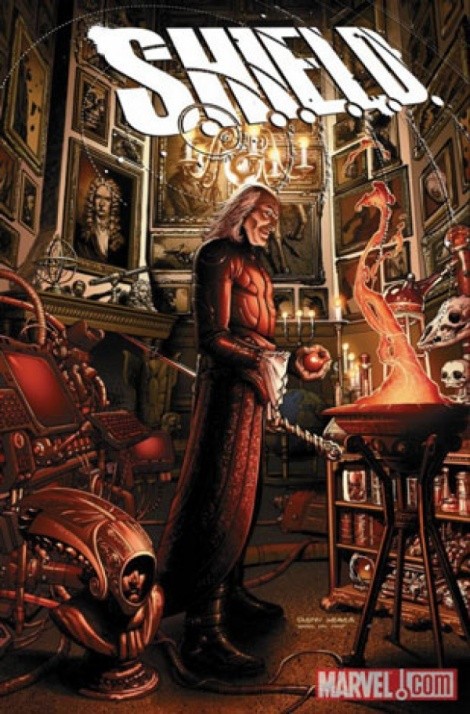
I was wrong: The first comic book I ever reviewed was Robert Kirkman’s apocalyptic zombie story The Walking Dead, back when it first debuted in 2004. I gave the first six issues an honest chance, but it just didn’t click. Kirkman’s writing felt stilted, none of the characters resonated and it just felt too soap-operay. As this fall’s AMC TV adaptation came closer, I decided to give it another chance. About four issues after I’d given up originally, Kirkman went nuts and managed to produce one of the best books of the past decade. I tore through the first 50 issues in three days and haven’t been able to get enough since. It takes a big man to admit when he’s wrong—and this time I clearly was.
I told you so: I’ve been saying Jonathan Hickman has big things ahead of him since The Nightly News popped up in 2007, and everyone else has taken notice now, too. He’s been working his way up the ladder at Marvel with a mini-series here and there and a solid ongoing project with Secret Warriors, but he surprised mainstream readers this year taking over Marvel’s first family, the Fantastic Four. And with S.H.I.E.L.D.—his take on the secret history of the Marvel Universe pitting Leonardo da Vinci against Isaac Newton—Hickman got a chance to flex some of the unique storytelling muscles and wild ideas he showed off to such praise on his indie books.
Best job of driving me away: Usually you can count on Mark Millar. The Authority, Superman: Red Son and Old Man Logan are all examples of top-notch storytelling. But lately, everything he does has some sort of gimmick, and he’s unable to simply let the story speak for itself. Instead of a simple title and byline, it’s become Mark Millar Presents the Greatest Comic Ever Written! I still enjoy his work-for-hire stuff at Marvel, but all of his creator-owned titles this year have left me cold and longing for the days when he was still trying to prove his worth instead of proclaiming he’s the second coming of Stan Lee and Steve Ditko combined.
Best job of pulling me back in: There was a two-year period where I didn’t read a single DC Universe book. Nothing made sense, the books were always switching artists mid-story and they were trotting out characters who hadn’t been used in 40 years and pretending it was a huge comeback. But with Grant Morrison in charge of the Batman universe (and Geoff Johns on Green Lantern and The Flash), I’ve been slowly pulled back in. All the little things he said would eventually be tied together have been taking shape, and his stories still feel fresh and exciting. There are still numerous DC characters I couldn’t care less about—and I’m afraid it’s only a matter of time before Morrison finds a way to get me with those, too.
